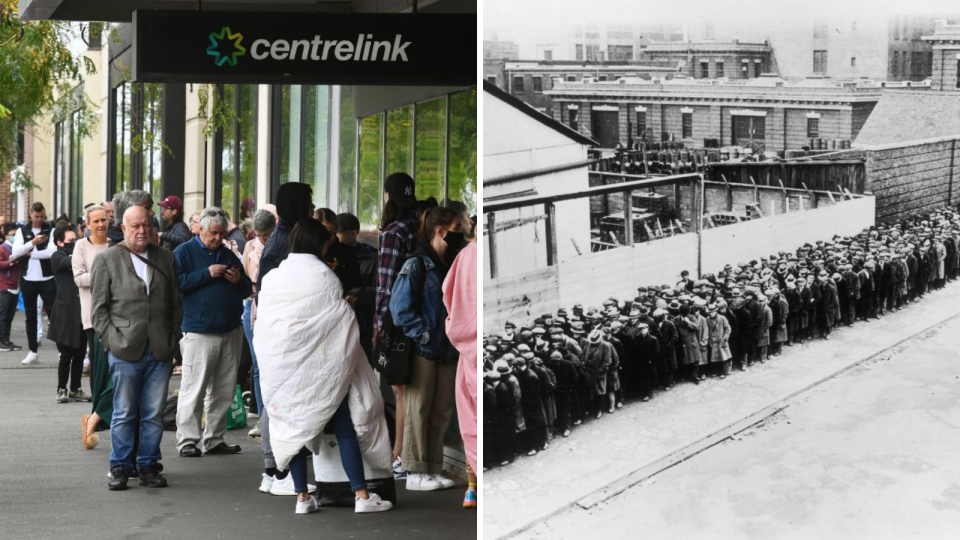Recession vs depression: What’s the difference?

The coronavirus pandemic has hit Australia’s economy hard. The widely-implemented draconian-style lockdown saw businesses close, people lose their jobs and household income and spending plummet.
Economists predict it will take several years until our economy is back on track to where it was pre-coronavirus.
In fact, the Reserve Bank itself said it believes it will take until 2022 for the economy to reach pre-covid levels - a view also shared by several other economists in the private sector, including from NAB and CBA.
There have also been concerns raised that Victoria’s second lockdown could derail the national recovery even with other states loosening restrictions.
This, combined with Australia’s unemployment rate being predicted to peak at more than 9.25 per cent in December, after reaching a 19-year-high at 7.4 per cent in June this year, has led some people to question whether we’re experiencing a depression instead of a recession.
More about Recession 2020:
Let's break down the difference between the two.
What is a recession?
A recession generally characterised as a decline in economic activity, which then results in businesses and individuals spending less money.
A recession in Australia is defined by a contraction in economic growth over two consecutive quarters. Some economists also consider a recession to be when stagnant economic growth lasts over 12 months, or there is a 1 per cent increase in the unemployment rate increase.
Is Australia in recession?
In short, yes.
In early September, Australian Bureau Statistics figures showed that our gross domestic product (GDP) actually shrank by 7 per cent over the June quarter. This represents the biggest drop in GDP since records began back in 1959 and is also the second consecutive quarterly contraction.
This is the worst economic growth in 61 years, and follows a 0.3 per cent decline in GDP across the March quarter.
What is a depression?
A depression is generally defined as a more severe version of a recession.
A depression is longer and more destructive with years, rather than quarters, of economic declining economic activity.
For example, in the Great Depression in the US, GDP was negative for six out of 10 years and in 1932 it shrank by a record 12.9 per cent.
Is Australia headed for a depression?
No.
We’re some way off being able to characterise this economic climate as a depression. It would need to last for a lot longer and consistently before a depression became a reality and thankfully many economists are confident of a recovery in the not-too-distant future.
So what does the next 10 years look like for Australia’s economy?
Bloomberg’s James McIntyre is one of the few economists to have looked that far ahead.
This week he forecast that by the end of the 2020s, growth will reach an average 2.8 per cent. The expectation for 2020, however, is a 2.8 per cent contraction on an annualised basis.
That negative trend is expected to reverse by 2021, with growth of 2 per cent forecast and accelerating after that.
Despite the second wave in Victoria, McIntyre is optimistic about the recovery. He believes it will only delay and not derail the economy in light of other states’ experiences.
“Australia has suffered a lighter blow from the pandemic than other major advanced economies,” McIntyre said.
“Australia’s virus outbreak was not as severe as expected, and the economy began reopening from the nationwide lockdown sooner than anticipated.”
McIntyre made a similar suggestion about the impact of Auckland’s containment measures on the rest of New Zealand’s economy.
He predicts a 4.1 per cent fall in New Zealand’s GDP in 2020 followed by a similar acceleration in growth in subsequent years.
Make your money work with Yahoo Finance’s daily newsletter. Sign up here and stay on top of the latest money, property and economy news and more.
Follow Yahoo Finance Australia on Facebook, Twitter, Instagram and LinkedIn.

 Yahoo Finance
Yahoo Finance 
